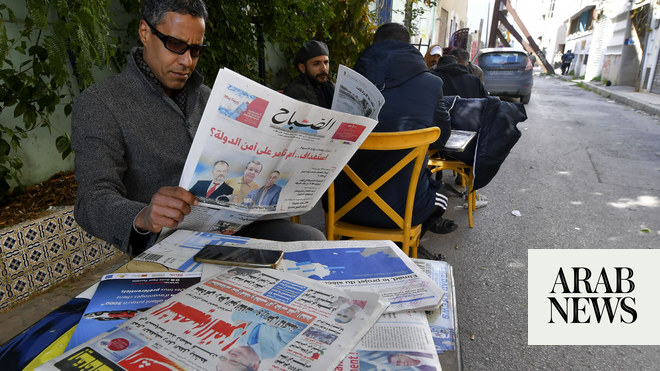
The state of emergency grants exceptional powers to security forces, allowing them to ban strikes
In Tunisia, which since its 2011 revolution has seen the emergence of terrorist groups, soldiers
TUNIS: Tunisia"s presidency has announced the extension of the country"s state of emergency, imposed in 2015 following a series of deadly terrorist attacks.
The decision to prolong the state of emergency until Nov. 6 comes amid a tense political climate ahead of legislative and presidential elections planned for next year.
President Beji Caid Essebsi took the decision after meeting with the ministers of defense and interior, his office said.
They discussed "the security and military situation in the country and at the borders," according to a statement.
The president also consulted Prime Minister Youssef Chahed, despite strained relations between the two.
The state of emergency grants exceptional powers to security forces, allowing them to ban strikes and meetings "likely to provoke... disorder."
It also includes measures to "assume control of the press."
The nationwide state of emergency was declared on Nov. 24, 2015, after an attack in the capital Tunis which killed 12 presidential guards. The suicide bombing was claimed by Daesh.
Earlier the same year attacks by Daesh on the capital"s Bardo museum and the coastal resort of Sousse left 59 tourists and a policeman dead.
The most recent large-scale assault came in March 2016, when dozens of terrorists attacked security installations in the town of Ben Guerdane on the Libyan border. Thirteen security forces and seven civilians were killed.
In Tunisia, which since its 2011 revolution has seen the emergence of terrorist groups, soldiers and police officers continue to be targeted particularly in mountainous areas bordering Algeria.
On Wednesday, two soldiers were killed in a land mine blast during an anti-terrorist operation on Mount Chaambi near the Algerian frontier.
Okba Ibn Nafaa, a Tunisia-based division of Al-Qaeda in the Islamic Maghreb (AQIM), is present in the area.
Tourist arrivals bounced back last year to above their pre-attack levels as the industry rebounds from the terrorist attacks.
More than 6 million foreign travellers visited Tunisia in the first nine months of 2018, according to government data, .
Arrivals rose 16.9 percent to 6.3 million in the nine months to the end of September, surpassing the number for the whole of 2014.
Tourism revenues in the first nine months of 2018 totalled just over $1.2 billion, a rise of 27.6 percent year-on-year.
But receipts were only two thirds of the level recorded for 2014 as a whole.
Inflation and excessive reliance on beachside holiday packages have slowed the longer-term recovery of revenues, said industry experts.
Arrivals from Europe and Russia rose nearly 45 percent, accounting for much of the surge, despite concerns that the hot European summer and the football World Cup could limit demand for Tunisian destinations.
Tourism Minister Selma Elloumi Rekik said in May that she expected total arrivals to exceed 8 million in 2018, higher than the 7 million recorded in 2010, a benchmark year for Tunisian tourism.
Tour operator Thomas Cook, which suspended its Tunisia holidays in the wake of the June 2015 Sousse attack, resumed operations in February.












